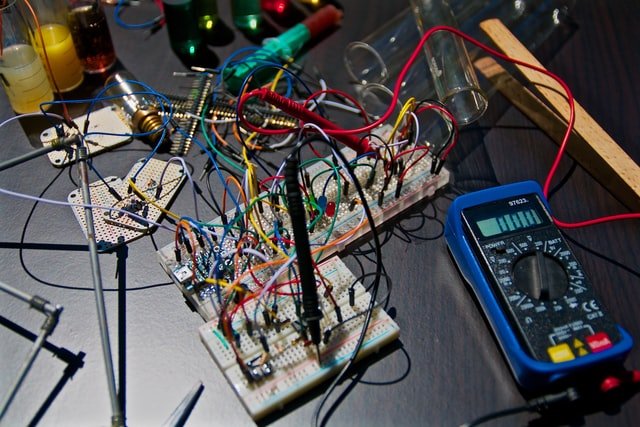MEASUREMENT IN PHYSICS
- Measurement of area and volume
- Concept & measurement of time and ways of measuring time.
Table of Contents
MEASUREMENT OF VOLUME
Volume of liquid objects is measured using instruments such as cylinder, burette, pipette, eureka can, etc. For regular solid objects, their volume could be determined using their mathematical formula.
| S/N | Solid Object | Formula for Volume |
| 1. | Cube | |
| 2. | Cuboid | |
| 3. | Cylinder | |
| 4. | Cone | |
| 5. | Sphere |
The S.I. unit of volume is metre cube .
MEASUREMENT OF AREA
The area of a solid object could be determined using mathematical formulae after determining the two dimensions of the object.
| S/N | Solid Object | Formula for Area |
| 1. | Triangle | |
| 2. | Rectangle | |
| 3. | Square | |
| 4. | Parallelogram | |
| 5. | Trapezium |
The S.I. unit of volume is metre square .
WORKED EXAMPLES
- Find the volume of a cylinder of diameter 12cm and height 15cm.
Solution:
Now,
2.What is area of a triangular card board of base 6cm and height 4cm?
Solution:
Evaluation:
- Calculate the volume of a rectangular prism of dimension 7cm by 3.5cm by 1.5cm.
- A cube has an edge of 0.8cm. Find its volume.
CONCEPT & MEASUREMENT OF TIME, AND WAYS OF MEASURING TIME
You must have heard the following statements made about time:
- “Time and tide waits for no man”
- “Time is business”
- “There is time for everything: time to sow and time to reap, time to laugh and time to cry, time to go to bed and time to wake up” and so on
Time is very important in our daily activities. Many people have failed in one area or the other because of mismanagement of time. In Physics time is very important. Wrong timing can lead to wrong observations, results and wrong conclusions.
What then is time. Time may be considered as the interval between two successive events. It is a fundamental quantity. Its S.I unit is seconds.
Ways of measuring time.
Time as mentioned earlier is very important. That is why early men developed various means of measuring time. They used the sun to tell time. Even today people still use the position of the sun to determine time. Other devices they developed and used are:
- The water clock
- The sand clock
- The primitive Sundials
Today, we have better time-measuring devices that measure time more accurately than the above mentioned devices. Some of them are:
- The stop watch which is the standard instrument for measuring time in the laboratory
- The wrist watch
- The modern pendulum clock
- The wall clock
It is worthy of note that:
- 60 seconds makes one minute
- 60 minutes makes one hour
- 24 hours makes one day
- 365/366 days makes one year
- 10 years makes a decade
- 100 years makes a century/centenary
- 1000 years makes a millennium
Calculations on time
Example 1
How many seconds are there in 2 hours 15 minutes?
Solution
Since 60 seconds makes 1 minute and 60 minutes makes 1 hour, 1 hour will have 60 x 60 seconds. 2 hours will have 60 x 60 x2 seconds = 7200seconds.
15 minutes will have 60 x 15 seconds = 900 seconds
Therefore 2 hours 15 minutes will have (7200 + 900) seconds = 8100 seconds
Example 2
If it takes a pendulum bob 32 seconds to complete 20 oscillations, what is the period of oscillation of the bob?
Solution
Period ( T ) is time ( t ) taken for the bob to complete an oscillation.
i.e T = t
number of oscillations
T = 32
20
= 1.6 seconds
Evaluation
- What is the standard instrument for measuring time in the laboratory?
- Mention 2 examples each of modern and olden days time-measuring devices you know.
GENERAL EVALUATION:
- Discuss the significance of time to the study of science.
- Highlight the various instrument for measuring time.
See also










I didn’t find what I was looking for ??
What were you looking for?. Kindly mention it. We may post it next or soon. Thank you